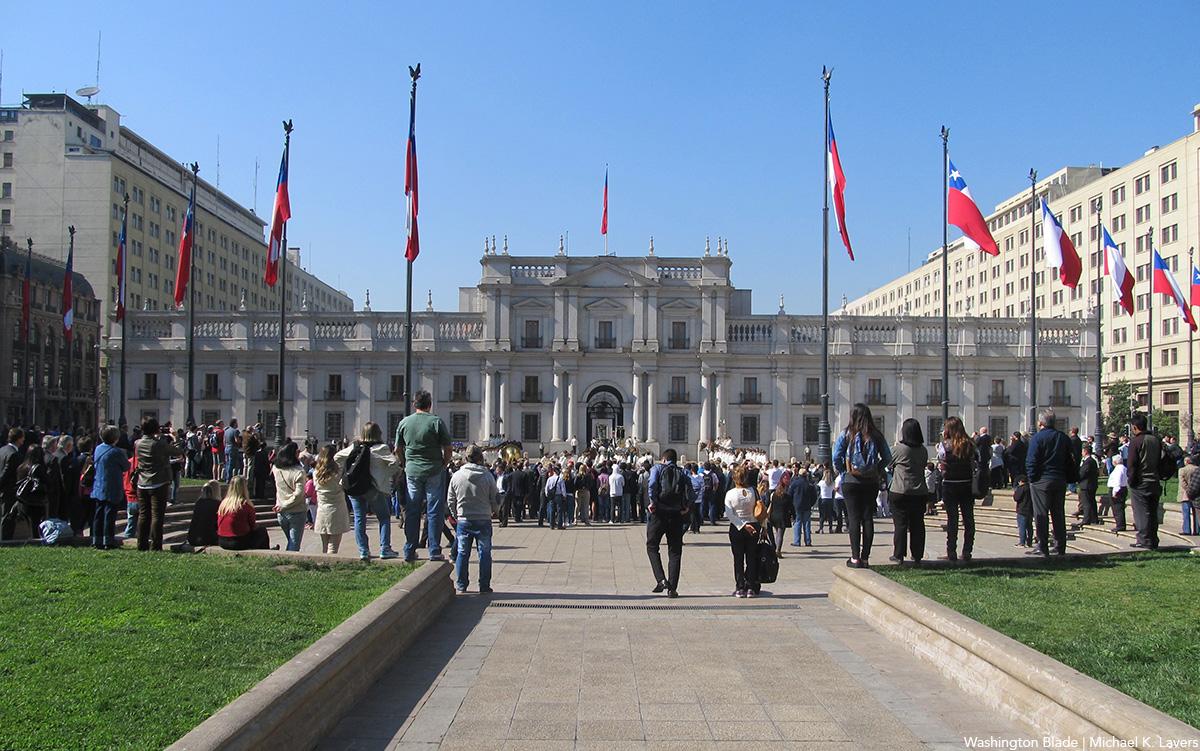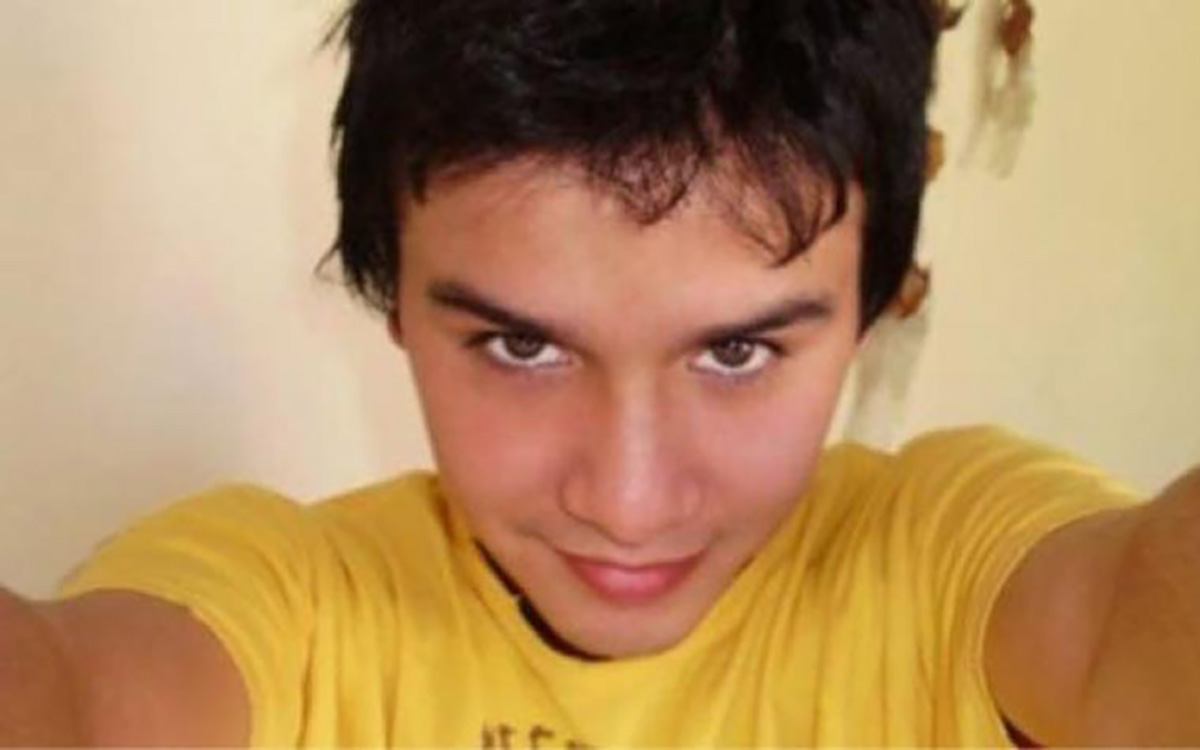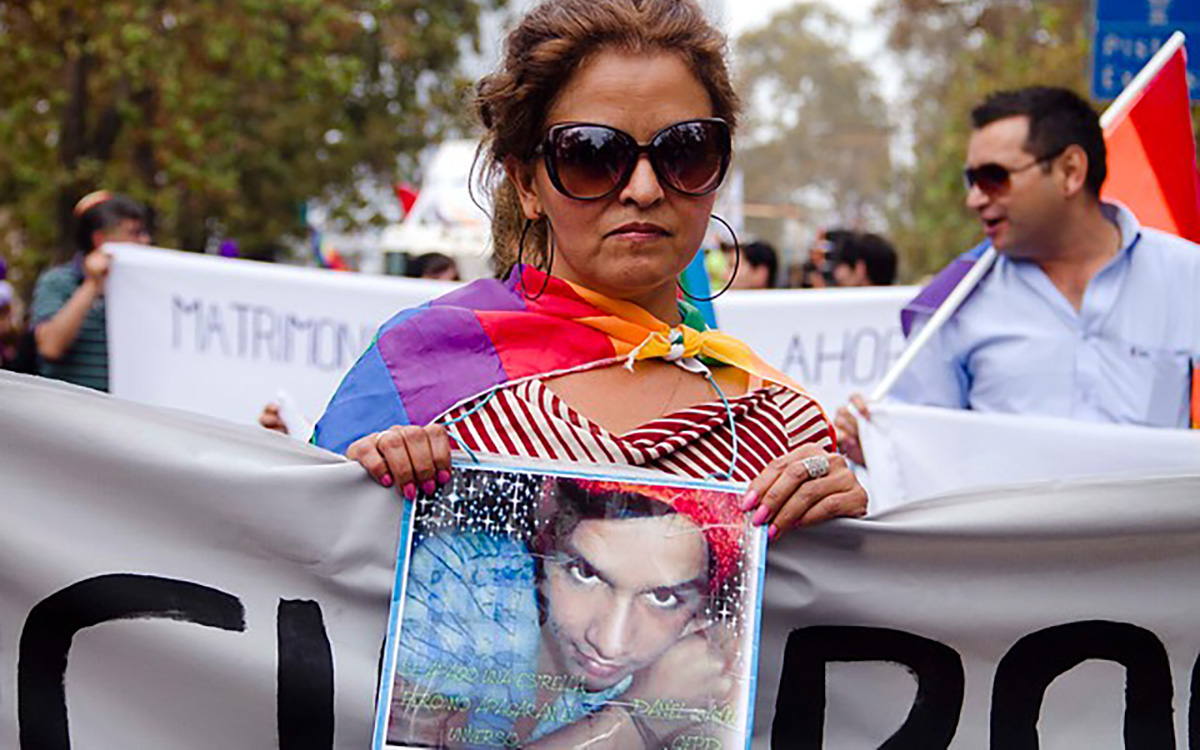South America
Chilean government urged to promote comprehensive sex education bill
Advocacy group sent request to Education Minister Claudio Cataldo

A Chilean advocacy group has submitted an urgent request to Education Minister Claudio Cataldo that urges President Gabriel Boric’s government to promote a comprehensive sex education bill.
The Movement for Homosexual Integration and Liberation asserts the implementation of a comprehensive sex education curriculum is essential to ensuring all students, regardless of their sexual orientation or gender identity, have access to an inclusive education without discrimination. The group also argues inclusive guidelines are crucial to promoting sexual and reproductive health and preventing gender-based violence and bullying.
“We met with the minister of education to ask him to promote a comprehensive sexual education bill, since it is of utmost importance that children and adolescents have this type of education,” Movilh spokesperson Javiera Zuñiga told the Washington Blade. “In addition, there is a commitment on the part of the state of Chile that was acquired in the Friendly Settlement Agreement before the Inter-American Commission on Human Rights for the demand of equal marriage, where the State commits itself to generate education policies.”
Zuñiga explained that “comprehensive sex education addresses several issues that are not dealt with in Chile today, which have to do not only with sexual orientation or gender identity, but also often have to do with knowing the body, being able to have tools to deal with abuse and also to know about sexually transmitted diseases. It is a wide range of topics that our children and adolescents today do not have access to know.”
The request comes at a crucial moment amid the ongoing debate over sex education in Chile.
The lack of a comprehensive policy has generated concern among various sectors of society, especially among LGBTQ organizations and human rights activists who have pointed out the urgent need to implement concrete measures to address this issue.
Faced with this new debate, Emilia Schneider, the country’s first transgender member of Congress, told the Blade she thinks “it is very good that Movilh joins many organizations that have been demanding and working for CSE (comprehensive sex education) for years in Chile.” These groups include Apofa, the Feminist Teachers Network and Chile Necesita CSE.
“I believe that their request is correct in the sense that comprehensive sexual education is necessary and is demanded by the educational communities themselves,” said Schneider.
Cataldo in response to Movilh’s request has expressed his willingness to dialogue and collaborate in the elaboration of a comprehensive bill. The government has yet to announce any concrete measures it plans to take to advance it.
Schneider explained that “for me CSE is a central issue, it has always been and I have been working for it for years.”
“Of course, my commitment remains intact,” she said. “There are already many bills on comprehensive sex education, which shows that it is a long debate that is still open in Chile. There is even a bill that (former President Sebastián Piñera)’s education minister, Marcela Cubillos, presented, and one from Republicans. I would call on the different sectors to sit down and reach an agreement once and for all before sending me an individual (bill.)”
Organizing Trans Diversities President Ignacia Oyarzún told the Blade that “all the needs we have as a community are urgent and are a priority and unfortunately all these urgencies are for yesterday.”
“We are talking about laws and regulations that protect the human rights of a community that has been historically violated,” said Oyarzún. “We are talking about a community that has been exterminated throughout history, both by society and by regulations. So we are talking about a community that deserves special protection”.
With regard to eventual support for this bill in Congress, Schneider pointed out that “unfortunately, the scenario for the CSE is very difficult.”
“That is why we have to be very strategic in order to move forward,” she said. “There is an international organization of the ultra-right to prevent us from advancing in this very important right, organizations such as Con Mis Hijos No Te Metas in other countries have even been associated with serious cases of child abuse. One wonders who they are defending. Either they are with the children and youth who are safer and protected with information and accompaniment or they are on the side of the abusers.”
“I hope there is a majority that understands that we can reach agreements to move forward, especially because the CSE is something that is constantly demanded by the educational communities,” added Schneider. “This does not exist today, and that is why we need a lot of capacity for dialogue and drive to build it, but above all to go out to do a lot of pedagogy and explain to the population its importance, especially to prevent and combat child sexual abuse.”
Oyarzún said “we believe that if we leave aside the more ideological issues and concentrate on what is really important, which are these children and adolescents, we could have a significant advance in Congress.”
South America
Argentina government dismisses transgender public sector employees
Country’s Trans Labor Quota Law enacted in 2021

Protests have broken out across Argentina in recent weeks after the dismissal of transgender people from their government jobs.
President Javier Milei’s action is in stark contract with the progress seen in 2023, where the government’s hiring of trans people increased by 900 percent within the framework of the Trans Labor Quota Law that had been in place since 2021.
Among those affected is Sofia Diaz, a “survivor” who shared her testimony with the Washington Blade hours after she traveled from Chaco Province to Buenos Aires to protest her dismissal.
Presentes, an LGBTQ news agency, reported the government dismissed more than 85 trans employees in less than two weeks.
Diaz, 49, holds a degree in combined arts. She joined the National Social Security Administration (ANSES) in 2022 under the Trans Labor Inclusion Law. The layoffs began in January and left many people feeling uncertain and anguished. It was her turn a few days ago.
Diaz in an interview recounted how the situation became progressively more complicated, with difficulties in accessing information about her employment status and the eventual confirmation of dismissals through WhatsApp messages. This government action, according to Diaz, violates the law.
“We were on a Friday, I think on March 24, in the office and we have a WhatsApp group of other colleagues from all over Argentina who entered through the trans labor quota and they tell us if we can get our pay stubs on the intranet,” Diaz recalled. “So, I tried to enter, I could not, I talked to two other colleagues and they told me no, they could not, and so we went to another person. He couldn’t either.”
“Some people told us that it could be a system error. Well, we were never calm, let’s say not how this issue of installing fear and the perversion with which they do it ends,” she added. “This sadism of … inflicting pain and speculating with your misfortune and so on … is something that characterizes Javier Milei’s government.”
Diaz recalled a list of those dismissed from the agency began to circulate from the union in the afternoon. A colleague passed it on to her, “and well, unfortunately I was also on that list.”
“At that moment the whole weekend went by with anguish, crying, and talking with other colleagues from other places, not only trans, but everyone, everyone and everyone,” she said. “On Monday when we went to try to enter, we could not enter with the biometric, which is the thumb we had to use every morning to enter.”
Despite the difficult moment through which she is going, the trans activist stressed to the Blade that she will continue protesting and will even sue the government because her dismissal is illegal and “violates the constitution itself.”
The LGBTQ community and its allies have mobilized and organized demonstrations, highlighting the importance of defending the rights won and fighting against discrimination and exclusion. Diaz emphasized the fight is not only for the people affected today, but also for future generations, saying the historical memory of the struggles for inclusion and social justice must be kept alive.
“The Argentine government thus faces a key challenge in human and labor rights, where public pressure and social mobilization can play a determining role in protecting the rights of LGBTQ+ people,” Diaz said.
South America
Daniel Zamudio murderer’s parole request denied
Raúl López Fuentes convicted of murdering gay man in Chilean capital in 2012

Chile’s Parole Commission on Tuesday rejected a request to allow one of the four men convicted of murdering Daniel Zamudio in 2012 to serve the remainder of his sentence outside of prison.
Raúl López Fuentes earlier this month asked the commission to release him on parole. Zamudio’s family and members of the Movement for Homosexual Integration and Liberation, a Chilean LGBTQ rights group, had gone to court to block the request.
Among the arguments put forward that influenced the commission’s decision is what Movilh categorized as his “high risk of recidivism, linked to the adherence of an antisocial behavior with a tendency to minimize his acts transgressing social norms.”
The commission pointed out that López has psychopathic traits because he is aware of the damage he did to Zamudio and his family.
“In addition, he maintains a high risk of violence, not being advisable to grant the benefit,” the report said.
Zamudio was a young Chilean man who became a symbol of the fight against homophobic violence in his country and around the world after López and three other young men with alleged ties to a neo-Nazi group beat him for several hours in Santiago’s San Borja Park on March 2, 2012. Zamudio succumbed to his injuries a few weeks later.
The attack sparked widespread outage in Chile and prompted a debate over homophobia in the country that highlighted the absence of an anti-discrimination law. Lawmakers in the months after Zamudio’s murder passed a law that bears Zamudio’s name.
López in 2013 received a 15-year prison sentence after he was convicted of killing Zamudio. Patricio Ahumada received a life sentence, while Alejandro Angulo Tapia is serving 15 years in prison. Fabían Mora Mora received a 7-year prison sentence.
Zamudio’s mother, Jacqueline Vera, exclusively told the Washington Blade after the commission rejected López’s request that “we as a family are calmer.”
“Even with my husband we were in a lot of pain at the beginning. It was like a blow of very strong emotions, so we tried to stay calm because we still had to solve the problem,” Vera said. “We had four days to solve it.”
López will have to serve the remaining three years of his sentence before his release.
“I will continue working to improve the Zamudio Law and so that this murderer does not leave prison because he is a danger to society, he does not represent repentance and people like this cannot be free,” she said. “For the same reason, we have to work so that hate crimes have life imprisonment and that is what we will concentrate on.”
South America
Man convicted of killing Daniel Zamudio in Chile seeks parole
Raúl López Fuentes in 2013 sentenced to 15 years in prison

One of the four men convicted of murdering a young gay man in the Chilean capital in 2012 is seeking parole.
Raúl López Fuentes in 2013 received a 15-year prison sentence after he was convicted of killing Daniel Zamudio.
Zamudio was a young Chilean man who became a symbol of the fight against homophobic violence in his country and around the world after López and three other young men with alleged ties to a neo-Nazi group beat him for several hours in Santiago’s San Borja Park on March 2, 2012. Zamudio succumbed to his injuries a few weeks later.
The attack sparked widespread outage in Chile and prompted a debate over homophobia in the country that highlighted the absence of an anti-discrimination law. Lawmakers in the months after Zamudio’s murder passed a law that bears Zamudio’s name.
Patricio Ahumada received a life sentence, while López and Alejandro Angulo Tapia are serving 15 years in prison. Fabían Mora Mora received a 7-year prison sentence.
López has asked the Seventh Santiago Guarantee Court to serve the last three years of his sentence on parole. Zamudio’s family and Jaime Silva, their lawyer who works with the Movement for Homosexual Integration and Liberation, oppose the request.
Movilh represented Zamudio’s family after his murder.
Zamudio’s mother, Jacqueline Vera, during an exclusive interview with the Washington Blade said López’s petition “provoked all the anguish, all the commotion of his time.”
“It was very cruel because in fact two days before we were at Daniel’s grave, where it was 12 years since his death and the beating,” said Vera. “He really does not deserve it.”
“We have gone through very difficult moments,” she added.
The mother, who later created a foundation to eradicate discrimination in Chile, was emphatic in indicating that she and her family “do not accept the release of this guy because he is a danger to society and a danger to ourselves.”
“At the last hearing where they were sentenced, they told us that we are going to remember them when they get out,” said Vera. “They threatened us with death. There is a video circulating on social networks where they were in front of me and they laughed and made fun of me. They told me that I remembered that I had three more children.”

Regarding the possibility that the Chilean justice system will allow López to serve the remaining three years of his sentence on parole, Vera said “with the benefits here in Chile, which is like a revolving door where murderers come and go, it can happen.”
“In any case, I don’t pretend, I don’t accept and I don’t want (López) to get out, I don’t want (López) to get out there,” she said. “We are fighting for him not to get out there because I don’t want him to get out there. And for me it is not like that, they have to serve the sentence as it stands.”
LGBTQ Chileans have secured additional rights since the Zamudio Law took effect. These include marriage equality and protections for transgender people. Advocacy groups, however, maintain lawmakers should improve the Zamudio Law.
“We are advocating for it to be a firmer law, with more strength and more condemnation,” said Vera.
When asked by the Washington Blade about what she would like to see improved, she indicated “the law should be for all these criminals with life imprisonment.”
-

 State Department4 days ago
State Department4 days agoState Department releases annual human rights report
-

 South America2 days ago
South America2 days agoArgentina government dismisses transgender public sector employees
-

 District of Columbia2 days ago
District of Columbia2 days agoCatching up with the asexuals and aromantics of D.C.
-

 Politics4 days ago
Politics4 days agoSmithsonian staff concerned about future of LGBTQ programming amid GOP scrutiny










